A recording of this presentation is available.
Click the button to the right to access the session archive.
Author Archive: tcconline2020
A Tapestry of Educational Technology Women Leaders in Higher Education: A Qualitative Study
A recording of this presentation is available.
Click the button to the right to access the session archive.
Arrière garde: Learn from astern
A recording of this presentation is available.
Click the button to the right to access the session archive.
Best Practices for Creating Multimedia Resources
A recording of this presentation is available.
Click the button to the right to access the session archive.
From One To Many: Using A Multi-site Approach To Address The Complex Needs Of A College Of Education Website
Expected to be completed in Summer 2020, the site is being built in phases that allow for making revisions based on feedback. In Spring 2020, the web design team will be conducting a usability study to determine whether website visitors are able to accomplish the common goals of prospective students. Methods will include participant observation and interviews.
The purpose of this presentation will be to share highlights from the process, the structure of the new site, the results of the usability study, and future site plans. While the results and lessons learned will stem from one College’s experience, it is expected that the implications will be applicable to other institutions.
A recording of this presentation is available.
Click the button to the right to access the session archive.
A Quickstart Guide (overview) to using VR for Teaching and Learning
A recording of this presentation is available.
Click the button to the right to access the session archive.
Establishing Educational Equity through OERs
This presentation discusses the Bachelor of Science in Professional Studies degree, ways to earn credit, prior learning assessment, and open educational resources.
A recording of this presentation is available.
Click the button to the right to access the session archive.
Empowering Engagement
A recording of this presentation is available.
Click the button to the right to access the session archive.
Flipped consensus-building: An online, anonymous approach
This presentation will share reflections from the two faculty members who designed the online activities. Online settings have been found to mediate the participation inequalities found in face-to-face meetings caused by the dominance of higher status and higher expertise group members (Dubrovsky, Kiesler, & Sethna, 1991). The advantages of using an anonymous, online consensus building process will be discussed. These include participants’ ability to “express facets of themselves without fear of disapproval and sanctions by those in their real-life social circle” (Bargh, McKenna, & Fitzsimons, 2002, p. 34), or not speaking up to avoid upsetting leaders or supervisors (Bryant & Cox, 2006).
The Delphi method that inspired the procedure will be briefly described, and the online tools used to facilitate the process will be shared. A summary of the results from the process will be provided. Findings indicate that consensus was achieved and inclusiveness experienced, but questions arose regarding efficiency and ongoing group communication. Opportunities and challenges with online tools and anonymity in groups will be discussed. An on-going prototype of this flipped meeting approach with on-going formative evaluation will also be briefly described. A discussion with session attendees will follow.
A recording of this presentation is available.
Click the button to the right to access the session archive.
Active Learning: Getting Students to Work and Think in the Classroom
A recording of this presentation is available.
Click the button to the right to access the session archive.

 Jennifer Harrison is a faculty member in the Department of Humanities & Social Sciences at Purdue University Global, and course lead for the University’s courses on American women’s history, the early American republic, and the 1960s. With a graduate degree in American history, she specializes in nineteenth-century American women’s history, Art and Humanities, and pop culture. She serves as chair of Purdue University Global’s Arts and Humanities GEL Committee, and has presented and / or published on the topics of general education literacies and course level assessments, digital literacy, American women’s education, and the presentation of women in the media.
Jennifer Harrison is a faculty member in the Department of Humanities & Social Sciences at Purdue University Global, and course lead for the University’s courses on American women’s history, the early American republic, and the 1960s. With a graduate degree in American history, she specializes in nineteenth-century American women’s history, Art and Humanities, and pop culture. She serves as chair of Purdue University Global’s Arts and Humanities GEL Committee, and has presented and / or published on the topics of general education literacies and course level assessments, digital literacy, American women’s education, and the presentation of women in the media. Dr. Jane Braaten Overmoe completed her doctorate after working as an instructional designer as well as a classroom teacher for three decades. She is veteran of 100 plays and musicals, mom to three and grandma to two lively grandsons.
Dr. Jane Braaten Overmoe completed her doctorate after working as an instructional designer as well as a classroom teacher for three decades. She is veteran of 100 plays and musicals, mom to three and grandma to two lively grandsons.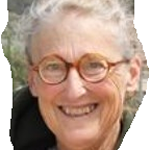 Dr. Katherine Watson has been teaching French, English, ESL, linguistics, anthropology, and journalism for more than five decades, at first among farm laborers in picking fields, then in traditional classrooms, and ultimately online. She co-conceived, developed, and taught the first online adjunct to a telecourse offered by the Corporation for Public Broadcasting, Annenberg Learner’s French in Action. Then, she launched the first completely-online course in California’s Coast Community College District. Her publications have concentrated on language and thought, as they are transmitted and learned through time, space, and mode of delivery, as well as the transdisciplinary nature of learning. Dr. Watson is also a professional translator and interpreter and a swimmer in any sea.
Dr. Katherine Watson has been teaching French, English, ESL, linguistics, anthropology, and journalism for more than five decades, at first among farm laborers in picking fields, then in traditional classrooms, and ultimately online. She co-conceived, developed, and taught the first online adjunct to a telecourse offered by the Corporation for Public Broadcasting, Annenberg Learner’s French in Action. Then, she launched the first completely-online course in California’s Coast Community College District. Her publications have concentrated on language and thought, as they are transmitted and learned through time, space, and mode of delivery, as well as the transdisciplinary nature of learning. Dr. Watson is also a professional translator and interpreter and a swimmer in any sea.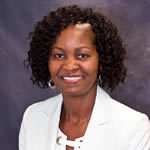 Eunice Luyegu is an Instructional Design Specialist and Assistant Professor at Nova Southeastern University in Florida.
Eunice Luyegu is an Instructional Design Specialist and Assistant Professor at Nova Southeastern University in Florida.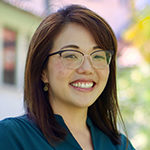 Faye Furutomo is a project manager and designer, specializing in web development and instructional design projects. She has been with the UH Mānoa College of Education since 2008, serving as web designer and program manager for Distance Course Design & Consulting (DCDC), an award winning design and development team. She is also currently pursuing her PhD in Learning Design & Technology at UH Manoa. In addition, she is a certified Project Management Professional (PMP) and earned her MBA from the Shidler College of Business, BA from Wheaton College in Illinois, BFA from the University of Hawai‘i at Mānoa, a Certificate of Online Learning and Teaching (COLT) from the Learning Design & Technology department. Faye is interested in the fields of project management, leadership, strategic planning, design and is passionate about improving higher education for Hawaii’s current and future generations.
Faye Furutomo is a project manager and designer, specializing in web development and instructional design projects. She has been with the UH Mānoa College of Education since 2008, serving as web designer and program manager for Distance Course Design & Consulting (DCDC), an award winning design and development team. She is also currently pursuing her PhD in Learning Design & Technology at UH Manoa. In addition, she is a certified Project Management Professional (PMP) and earned her MBA from the Shidler College of Business, BA from Wheaton College in Illinois, BFA from the University of Hawai‘i at Mānoa, a Certificate of Online Learning and Teaching (COLT) from the Learning Design & Technology department. Faye is interested in the fields of project management, leadership, strategic planning, design and is passionate about improving higher education for Hawaii’s current and future generations. Michelle Carino is a graphic designer with experience in branding, marketing, print, and web. She worked with non-profit organizations, with ad and design agencies, and in-house. Since 2011, she’s served as an art director/user interface designer at the College of Education. She graduated from the University of Hawai’i at Mānoa with a Bachelor in Fine Art and is currently working toward a master’s degree in library and information science.
Michelle Carino is a graphic designer with experience in branding, marketing, print, and web. She worked with non-profit organizations, with ad and design agencies, and in-house. Since 2011, she’s served as an art director/user interface designer at the College of Education. She graduated from the University of Hawai’i at Mānoa with a Bachelor in Fine Art and is currently working toward a master’s degree in library and information science. Dr. Ariana Eichelberger is an Associate Specialist and Instructional Designer in the College of Education. Eichelberger manages the Instructional Support Group of the College and coordinates the College’s faculty professional development program. As a faculty member of the Department of Learning Design and Technology, Eichelberger teaches graduate and undergraduate courses in instructional design and technology integration. She is also an instructional designer with the COE’s Distance Course Design and Consulting group (DCDC).
Dr. Ariana Eichelberger is an Associate Specialist and Instructional Designer in the College of Education. Eichelberger manages the Instructional Support Group of the College and coordinates the College’s faculty professional development program. As a faculty member of the Department of Learning Design and Technology, Eichelberger teaches graduate and undergraduate courses in instructional design and technology integration. She is also an instructional designer with the COE’s Distance Course Design and Consulting group (DCDC). Rebekah Davis is a PhD student in the Learning Design and Technology program at NC State. She is the Digital Learning Graduate Assistant in METRC, the College of Education’s media resource center. Along with conducting in-house and conference workshops on technology integration topics, she teaches the Introduction to Instructional Technology class for undergraduates.
Rebekah Davis is a PhD student in the Learning Design and Technology program at NC State. She is the Digital Learning Graduate Assistant in METRC, the College of Education’s media resource center. Along with conducting in-house and conference workshops on technology integration topics, she teaches the Introduction to Instructional Technology class for undergraduates.
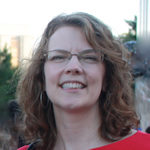 Laura B. Fogle has over twenty years of experience in educational technology. She has taught in preschool, elementary and middle school. She has developed online graduate courses, and presented at regional and national conferences on the topic of instructional technology. She currently serves the College of Education at NC State University as the Assistant Director of Media and Education Technology Resource Center (METRC), where she enjoys working with students and educators to enhance teaching and learning with technology. She holds a BS in Electrical Engineering and a Masters in Instructional Technology. Her interests include makerspaces, virtual reality, and digital equity.
Laura B. Fogle has over twenty years of experience in educational technology. She has taught in preschool, elementary and middle school. She has developed online graduate courses, and presented at regional and national conferences on the topic of instructional technology. She currently serves the College of Education at NC State University as the Assistant Director of Media and Education Technology Resource Center (METRC), where she enjoys working with students and educators to enhance teaching and learning with technology. She holds a BS in Electrical Engineering and a Masters in Instructional Technology. Her interests include makerspaces, virtual reality, and digital equity.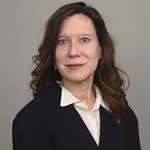 Dr. Carolyn Stevenson is currently a full-time faculty member for Purdue University Global. She completed her Ed.D. from Roosevelt University, M.B.A. from Kaplan University, M.A. in Communications from Governor’s State University and B.A. in English from Northern Illinois University. She has been cited for her expertise in online learning, qualitative research, open educational resources, and prior learning. She is also a regular reviewer for conference papers and textbooks and has served on various offices and committees for the American Education Research Association. Carolyn has over 20 years teaching and administrative experience in higher education at both the undergraduate and graduate levels and has taught Speech, Fine Arts and Humanities for City Colleges of Chicago. She is currently working on editing a text entitled Enhancing Higher Education Accessibility through Open Education and Prior Learning, to be published by IGI Global in 2020.
Dr. Carolyn Stevenson is currently a full-time faculty member for Purdue University Global. She completed her Ed.D. from Roosevelt University, M.B.A. from Kaplan University, M.A. in Communications from Governor’s State University and B.A. in English from Northern Illinois University. She has been cited for her expertise in online learning, qualitative research, open educational resources, and prior learning. She is also a regular reviewer for conference papers and textbooks and has served on various offices and committees for the American Education Research Association. Carolyn has over 20 years teaching and administrative experience in higher education at both the undergraduate and graduate levels and has taught Speech, Fine Arts and Humanities for City Colleges of Chicago. She is currently working on editing a text entitled Enhancing Higher Education Accessibility through Open Education and Prior Learning, to be published by IGI Global in 2020. Dr. Marlene N. Blake has worked in higher education for 16 years in various roles from student services, academic affairs/operations, and support resources. Her current career in faculty training and development focuses on optimizing the teaching and learning process as well as ensuring exceptional educational standards. She enjoys conducting researching on meaningful motivation, connectedness, leadership and providing professional development opportunities that are uniquely innovative. Dr. Blake has taught student success, critical thinking, interpersonal communication, and doctoral courses online for 12 years. She is passionate about teaching, training, mentoring, and empowering faculty/students. Dr. Blake has a Bachelor’s in Psychology with a minor in Family Studies and Child Development, a Master’s in Education focusing on Adult Distance Education as well as Curriculum and Instruction, and a Ph.D. in Higher Education Administration. Beyond teaching and supporting students/faculty, she enjoys traveling with her husband and daughter!
Dr. Marlene N. Blake has worked in higher education for 16 years in various roles from student services, academic affairs/operations, and support resources. Her current career in faculty training and development focuses on optimizing the teaching and learning process as well as ensuring exceptional educational standards. She enjoys conducting researching on meaningful motivation, connectedness, leadership and providing professional development opportunities that are uniquely innovative. Dr. Blake has taught student success, critical thinking, interpersonal communication, and doctoral courses online for 12 years. She is passionate about teaching, training, mentoring, and empowering faculty/students. Dr. Blake has a Bachelor’s in Psychology with a minor in Family Studies and Child Development, a Master’s in Education focusing on Adult Distance Education as well as Curriculum and Instruction, and a Ph.D. in Higher Education Administration. Beyond teaching and supporting students/faculty, she enjoys traveling with her husband and daughter! Dr. Meng-Fen Grace Lin is an Associate Professor in the Department of Learning Design and Technology (LTEC) in the College of Education at the University of Hawaii at Manoa. She teaches graduate-level courses on mobile learning, design thinking, and research and evaluation of LTEC. Her recent research interests center on applying design thinking, creativity, and problem-solving in real-world education contexts.
Dr. Meng-Fen Grace Lin is an Associate Professor in the Department of Learning Design and Technology (LTEC) in the College of Education at the University of Hawaii at Manoa. She teaches graduate-level courses on mobile learning, design thinking, and research and evaluation of LTEC. Her recent research interests center on applying design thinking, creativity, and problem-solving in real-world education contexts.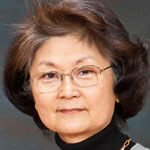 Kwi Park-Kim is Associate Professor of Business & Information Systems Department at
Kwi Park-Kim is Associate Professor of Business & Information Systems Department at